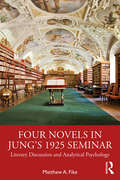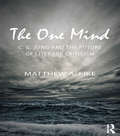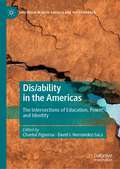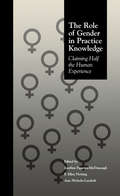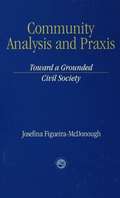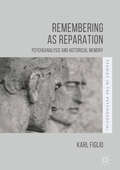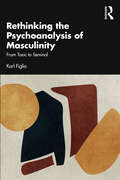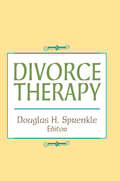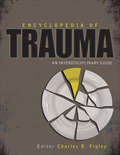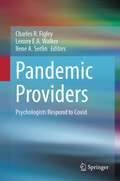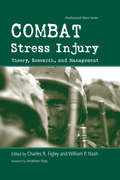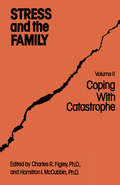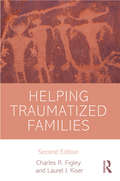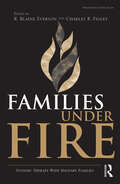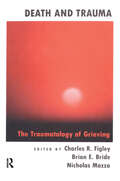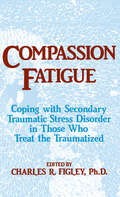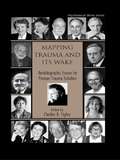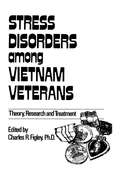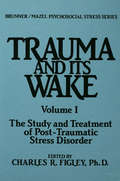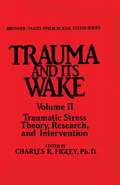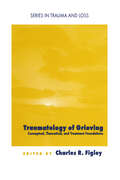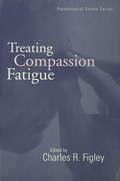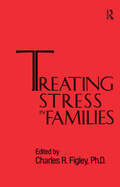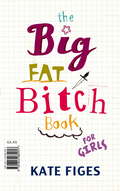- Table View
- List View
Four Novels in Jung’s 1925 Seminar: Literary Discussion and Analytical Psychology
by Matthew A FikeC. G. Jung believed that popular fiction often conveyed unvarnished psychological truths. In this volume, Matthew A. Fike skillfully analyzes the novels under consideration in Jung’s 1925 seminar on analytical psychology, corrects Jung’s ill-informed perspectives, and sheds light on a neglected area of Jungian literary studies. Jung originally planned to discuss several novels about the anima—Henry Rider Haggard’s She, Pierre Benoît’s L’Atlantide, and Gustav Meyrink’s The Green Face. At the request of his participants, he dropped Meyrink and included a text about the animus, Marie Hay’s The Evil Vineyard. Fike demonstrates that Haggard’s She and Benoît’s L’Atlantide portray anima possession, the visionary and psychological modes, and traditional versus Jungian approaches to history. Meyrink’s smorgasbord of Jungian theory and religion makes The Green Face a fictional counterpart to The Red Book, and both Meyrink and Hay depict states of higher consciousness that transcend the archetypes. The distinction between archetypal and spiritual possession demonstrates that The Evil Vineyard is a ghost story, and the study concludes with Hay’s dozens of allusions, which provide important metacommentary. Four Novels in Jung’s 1925 Seminar, the first comprehensive study of all four texts, complements seminal works by Cornelia Brunner and Barbara Hannah, critiques the seminar discussion recorded in William McGuire’s edition of Analytical Psychology: Notes of the Seminar Given in 1925 by C. G. Jung, and incorporates Jung’s own comments on the four novels in The Collected Works. Thus, it provides an essential addition to Jungian literary studies and will appeal both to students and practitioners of Jungian analytical psychology and to scholars of British, French, and German literature.
The One Mind: C. G. Jung and the future of literary criticism
by Matthew A. FikeThe One Mind: C. G. Jung and the Future of Literary Criticism explores the implications of C. G. Jung's unus mundus by applying his writings on the metaphysical, the paranormal, and the quantum to literature. As Jung knew, everything is connected because of its participation in universal consciousness, which encompasses all that is, including the collective unconscious. Matthew A. Fike argues that this principle of unity enables an approach in which psychic functioning is both a subject and a means of discovery—psi phenomena evoke the connections among the physical world, the psyche, and the spiritual realm. Applying the tools of Jungian literary criticism in new ways by expanding their scope and methodology, Fike discusses the works of Hawthorne, Milton, Shakespeare, Wordsworth, and lesser-known writers in terms of issues from psychology, parapsychology, and physics. Topics include the case for monism over materialism, altered states of consciousness, types of psychic functioning, UFOs, synchronicity, and space-time relativity. The One Mind examines Goodman Brown's dream, Adam's vision in Paradise Lost, the dream sequence in "The Wanderer," the role of metaphor in Robert A. Monroe's metaphysical trilogy, Orfeo Angelucci's work on UFOs, and the stolen boat episode in Wordsworth's The Prelude. The book concludes with case studies on Robert Jordan and William Blake. Considered together, these readings bring us a significant step closer to a unity of psychology, science, and spirituality. The One Mind illustrates how Jung's writings contain the seeds of the future of literary criticism. Reaching beyond archetypal criticism and postmodern theoretical approaches to Jung, Fike proposes a new school of Jungian literary criticism based on the unitary world that underpins the collective unconscious. This book will appeal to scholars of C. G. Jung as well as students and readers with an interest in psychoanalysis, literature, literary theory, and the history of ideas.
Dis/ability in the Americas: The Intersections of Education, Power, and Identity (Education in Latin America and the Caribbean)
by Chantal Figueroa David I. Hernández-SacaThis edited volume highlights the rich and complex educational debates around Critical Disability Studies in Education (DSE), critical mental health, and crip theories. Chapter authors use the term Dis/ability to criticize aspects of education research and international development that do not center the experiences of dis/abled students and people with dis/abilities. Through case studies from around the Americas, chapters highlight how top-down approaches to disabilities further oppress rather than emancipate. The volume prioritizes the spaces of resistance where local initiatives speak back to the demands imposed by an ever-globalizing world shaped by colonialism and imperialism, undergird by intersectional ableism. Voices of disabled students and people with dis/abilities counter-narrate the personal, interpersonal, structural, and political ways in which biomedical and psychological models of disability have impacted their well-being throughout education and society in the Americas. Through a critical sentipensante approach that centers the “epistemologies of the south,” this volume challenges global mental health and dis/ability hegemony in the Americas.
The Role of Gender in Practice Knowledge: Claiming Half the Human Experience (Social Psychology Reference Series #Vol. 1086)
by Josefina Figueira-McDonough F. Ellen Netting Ann Nichols-CaseboltFeminist critiques of the social sciences are based on the assumption that because the social sciences were developed for the most part by white, middle-class, Western men, the perspectives of women were ignored. This book offers an approach for integrating gender-related content into the social work curriculum. The distinguished contributors discuss the shortcoming of dominant knowledge, address the pressing need for a gender-integrated curriculum, consider the pedagogies consistent with the implementation of an integrate curriculum, address specific areas in social work education, assessing content, and assumptions, and discuss strategic issues for the implementation of curricular knowledge.
Community Analysis and Practice: Toward a Grounded Civil Society
by Josefina Figueira-McDonoughConcentrating on three main themes - environmental complexity, community as the target of intervention, and commitment to social justice - Community Theory and Practice updates and expands the current boundaries of thinking about community organization. This book is an important resource for social work students, educators, and practitioners, as well as those who work in the areas of sociology, urban studies, community organization and development, and criminology, and other areas of social study and policy.
Remembering as Reparation
by Karl FiglioBelow we have provided very simple written essay and speech on the Mahatma Gandhi, a person who would always live in the heart of everyone. Every kid and children of the India know him by the name of Bapu or Father of the Nation. Using this you can help your kids and school going children to write essay or recite speech on the Mahatma Gandhi in their school
Rethinking the Psychoanalysis of Masculinity: From Toxic to Seminal
by Karl FiglioDrawing on a broad range of psychoanalytic, cultural and social influences, the author examines the concept of toxic masculinity for how it brings into focus a widespread anxiety about toxicity throughout daily life: In nature, society and personal relationships. Aggressive, misogynistic masculinity has become a major topic in recent years, spreading throughout popular culture, the media and research. Often called 'phallic,' it simmers in everyday life and hits the headlines for turning florid and violent in maintaining its dominance, especially towards women. But at the extreme, phallic masculinity has recently crystallized in a very different form, as toxic masculinity, and 'toxic' has become the near-universal epithet for all forms of extreme destructiveness in a 'toxic culture.' It has brought into focus, and named as masculine, an anxiety over toxicity in every corner of everyday life. Exploring toxic masculinity in depth brings out a misogynistic current that pervades individual and social realms, but also throws a sharp light on normal masculinity. By elaborating on the roots of this toxicity, Figlio is able to draw out a different, more positive alternative for masculinity, with particular reference to the underlying fears around fertility and the seminal. With a strong research and clinical base, this book is essential reading for all psychoanalysts and psychoanalytic psychotherapists and cultural and social theorists interested in exploring concepts of masculinity.
Divorce Therapy
by Charles Figley, PhdExamine a wide variety of divorce therapy approaches with this seminal book. Divorce Therapy is one of the first books to present a comprehensive approach to divorce therapy. Based on a foundation of theory and research about divorce, this landmark volume focuses on the help that psychotherapists can provide during the three stages of divorce--pre-divorce decision making, divorce restructuring, and post-divorce recovery. A distinguished array of researchers and clinicians address discuss mediation, criteria for a constructive divorce, remarriage, custody issues, and much more.
Encyclopedia of Trauma: An Interdisciplinary Guide
by Dr Charles R. FigleyTrauma is defined as a sudden, potentially deadly experience, often leaving lasting, troubling memories. Traumatology (the study of trauma, its effects, and methods to modify effects) is exploding in terms of published works and expanding in terms of scope. Originally a narrow specialty within emergency medicine, the field now extends to trauma psychology, military psychiatry and behavioral health, post-traumatic stress and stress disorders, trauma social work, disaster mental health, and, most recently, the subfield of history and trauma, with sociohistorical examination of long-term effects and meanings of major traumas experienced by whole communities and nations, both natural (Pompeii, Hurricane Katrina) and man-made (the Holocaust, 9/11). One reason for this expansion involves important scientific breakthroughs in detecting the neurobiology of trauma that is connecting biology with human behavior, which in turn, is applicable to all fields involving human thought and response, including but not limited to psychiatry, medicine and the health sciences, the social and behavioral sciences, the humanities, and law. Researchers within these fields and more can contribute to a universal understanding of immediate and long-term consequences–both good and bad–of trauma, both for individuals and for broader communities and institutions. Trauma encyclopedias published to date all center around psychological trauma and its emotional effects on the individual as a disabling or mental disorder requiring mental health services. This element is vital and has benefited from scientific and professional breakthroughs in theory, research, and applications. Our encyclopedia certainly will cover this central element, but our expanded conceptualization will include the other disciplines and will move beyond the individual.
Pandemic Providers: Psychologists Respond to Covid
by Charles R. Figley Lenore E. A. Walker Ilene A. SerlinEmanating from a working group of the American Psychological Association, this comprehensive volume provides a blueprint for pandemic preparedness for health and mental health professionals. It reviews the actual experiences faced by practitioners during the current Covid crisis, and provides historical context of past health crises, such as the 1918 flu epidemic. Lessons learned from previous health disasters are utilized to provide guidelines and best practices for managing large scale health crises. The goal of this book is to offer the tools for health providers to mobilize, collaborate and provide effective and compassionate services. Relevant to psychologists, psychiatrists, nurses, social workers and others, this volume is an invaluable resource for the present and for the inevitable pandemics to come.
Combat Stress Injury: Theory, Research, and Management (Psychosocial Stress Series)
by Charles R. Figley William P. NashCombat Stress Injury represents a definitive collection of the most current theory, research, and practice in the area of combat and operational stress management, edited by two experts in the field. In this book, Charles Figley and Bill Nash have assembled a wide-ranging group of authors (military / nonmilitary, American / international, combat veterans / trainers, and as diverse as psychiatrists / psychologists / social workers / nurses / clergy / physiologists / military scientists). The chapters in this volume collectively demonstrate that combat stress can effectively be managed through prevention and training prior to combat, stress reduction methods during operations, and desensitization programs immediately following combat exposure.
Stress And The Family: Coping With Catastrophe (Psychosocial Stress Series #No. 2)
by Charles R. Figley Hamilton I. McCubbinFirst Published in 1983. Routledge is an imprint of Taylor & Francis, an informa company.
Helping Traumatized Families: Systemic Strategies (Psychosocial Stress Series)
by Charles R. Figley Laurel J. KiserThe new edition of the classic Helping Traumatized Families not only offers clinicians a unified, evidence-based theory of the systemic impact of traumatic stress—it also details a systematic approach to helping families heal by promoting their natural healing resources. Though the impact of trauma on a family can be growth producing, some families either struggle or fail to adapt successfully. Helping Traumatized Families guides practitioners around common pitfalls and toward a series of evidence-based strategies that they can use to help families feel empowered and ultimately to thrive by developing tools for enhancing resilience and self-regulation.
Families Under Fire: Systemic Therapy With Military Families (Psychosocial Stress Series)
by Charles R. Figley R. Blaine EversonAs provider networks on military bases are overwhelmed with new cases, civilian clinicians are increasingly likely to treat military families. However, these clinicians do not receive the same military mental-healthcare training as providers on military installations, adding strain to clinicians’ workloads and creating gaps in levels of treatment. Families Under Fire fills these gaps with real-world examples, clear, concise prose, and nuts-and-bolts approaches for working with military families utilizing a systems-based practice that is effective regardless of branch of service or the practitioner’s therapeutic preference. Any civilian mental-health practitioner who wants to understand the diverse needs of military personnel, their spouses, and their families will rely on this indispensable guidebook for years to come.
Death And Trauma: The Traumatology Of Grieving (Series in Trauma and Loss)
by Charles R. Figley Brian E. Bride Nicholas MazzaFirst published in 1997. Although the fields of thanatology and traumatology have received robust attention during their parallel development, little effort has been made to address their overlapping territory. This volume is the first attempt to do so. Specifically, the purpose of this book is fourfold. First is to provide a theoretical bridge between the two fields by providing conceptual terminology, such as defining normal versus dysfunctional bereavement and the meaning and range of death-related PTSD. The second confirms and illustrates the identical patterns of reactions between those who survive the death of a loved one and those who survive other traumatic events. Next the book applies the most useful theoretical models to the bereavement experience, and in turn acknowledges the utility of generalizing bereavement models to other traumatic experiences; in doing so, the two fields can enrich each other. Similarly, the volume's final purpose is to identify and apply the most useful and effective approaches in traumatology literature to the study, diagnosis and treatment of traumatic stressors other than death.
Compassion Fatigue: Coping With Secondary Traumatic Stress Disorder In Those Who Treat The Traumatized (Psychosocial Stress Series #Vol. 23)
by Charles R. FigleyFirst published in 1995. Traumatology, or the field of traumatic stress studies, has become a dominant focus of interest in the mental health fields only in the past decade. Yet the origin of the study of human reactions to traumatic events can be traced to the earliest medical writings in Kunus Pyprus, published in 1900 B.C. in Egypt. Many factors account for the recent emergence of this field, including a growing awareness of the long-term consequences of shocking events. Among these consequences are violence toward others, extraordinary depression, dysfunctional behavior, and a plethora of medical maladies associated with emotional stress. This is the latest in a series of books that have focused on the immediate and long-term consequences of highly stressful events. The purposes of the book, then, are (a) to introduce the concept of compassion fatigue as a natural and disruptive by-product of working with traumatized and troubled clients; (b) to provide a theoretical basis for the assessment and treatment of compassion stress and compassion fatigue: (c) to explain the difference between compassion fatigue and PTSD, burnout, and countertransference; (d) to identify innovative methods for treating compassion fatigue in therapists, and (e) to suggest methods for preventing compassion fatigue.
Mapping Trauma and Its Wake: Autobiographic Essays by Pioneer Trauma Scholars (Psychosocial Stress Series #Vol. 31)
by Charles R. FigleyMapping Trauma and Its Wake is a compilation of autobiographic essays by seventeen of the field's pioneers, each of whom has been recognized for his or her contributions by the International Society for Traumatic Stress Studies. Each author discusses how he or she first got interested in the field, what each feels are his or her greatest achievements, and where the discipline might - and should - go from here. This impressive collection of essays by internationally-renowned specialists is destined to become a classic of traumatology literature. It is a text that will provide future mental health professionals with a window into the early years of this rapidly expanding field.
Stress Disorders Among Vietnam Veterans: Theory, Research (Psychosocial Stress Series #Vol. 1)
by Charles R. FigleyFirst published in 1978. Routledge is an imprint of Taylor & Francis, an informa company.
Trauma And Its Wake (Psychosocial Stress Series)
by Charles R. FigleyPublished in the year 1985, Trauma and its Wake is a valuable contribution to the field of Counseling and School Psychology.
Trauma And Its Wake (Psychosocial Stress Series #Vol. 4)
by Charles R. FigleyFirst published in 1987. Trauma and Its Wake, Volume II: Post-Traumatic Stress Disorder Theory, Research, and Treatment is the eighth book in the Psychosocial Stress Book Series. The purpose of the Series is to develop and publish books that in some way make a significant contribution to the understanding and management of the psychosocial stress reaction paradigm. The books are designed to advance the work of clinicians, researchers, and other professionals involved in the varied aspects of human services. The primary readership of this Series includes those practitioners, scholars, and their students who are committed to this purpose. The origin of this current book can be traced to Volume #4 in the Series, Trauma and Its Wake: The Study and Treatment of Post-Traumatic Stress Disorder, edited by Charles R. Figley. This was the first attempt to generalize research and clinical findings among a wide variety of traumatic or catastrophic events towards a generalized view of traumatic and post-traumatic stress reactions. Chapters focused on the immediate and long-term psychosocial consequences of exposure to one of many types of catastrophic events: war, rape, natural disasters, incest. Other chapters focused on effective methods of treating or preventing stress reactions or disorders. It is the first in a series of books that will review the latest innovations in theory, research, and treatment of post-traumatic stress disorder (PTSD), caused by a wide variety of stressful life events. The book you are reading is the second of this series of annually published volumes on PTSD within the Book Series.
Traumatology of grieving: Conceptual, theoretical, and treatment foundations (Series in Trauma and Loss)
by Charles R. FigleyFirst published in 1999. Routledge is an imprint of Taylor & Francis, an informa company.
Treating Compassion Fatigue: Coping With Secondary Traumatic Stress Disorder In Those Who Treat The Traumatized (Psychosocial Stress Series)
by Charles R. FigleyIn recent years, much has occurred in the field of traumatology, including the widening of the audience and the awareness of PTSD (post-traumatic stress disorder). This book from celebrated traumatology pioneer Charles Figley, further clarifies the concept of compassion fatigue through theory, research, and treatment. The basic thesis of this book is the identification, assessment, and treatment of compassion fatigue and this is done over eleven chapters, each from distinguished researchers in the field.
Treating Stress In Families......... (Psychosocial Stress Series)
by Charles FigleyProvides an overview of the causes and treatment approaches for counseling families under stress, and focuses on several examples of extreme tension.
The Big Fat Bitch Book
by Kate FigesWhy do women excel at bitching? And are there ways to do it well?In this unique and entertaining book, Kate Figes explores girltalk, the way bitching erupts amongst teenage girls, the tenacity of female stereotypes as well as essential guidance on being the best kind of bitch - strong and self-assured rather than the bitch that needs to put other women down to feel stronger. Packed with witty anecdote, etiquette, interviews and contributions from strong bitches such as Kathy Lette, Wendy Holden and Virginia Ironside this is a must read for all women on the most delicious, yet dangerous of verbal art forms.
The Big Fat Bitch Book
by Kate FigesWhy do women excel at bitching? And are there ways to do it well?In this unique and entertaining book, Kate Figes explores girltalk, the way bitching erupts amongst teenage girls, the tenacity of female stereotypes as well as essential guidance on being the best kind of bitch - strong and self-assured rather than the bitch that needs to put other women down to feel stronger. Packed with witty anecdote, etiquette, interviews and contributions from strong bitches such as Kathy Lette, Wendy Holden and Virginia Ironside this is a must read for all women on the most delicious, yet dangerous of verbal art forms.
